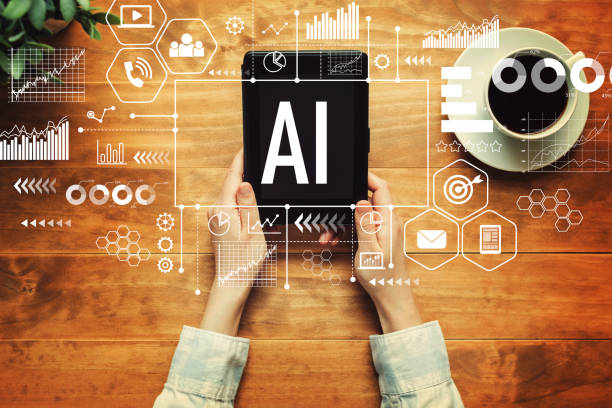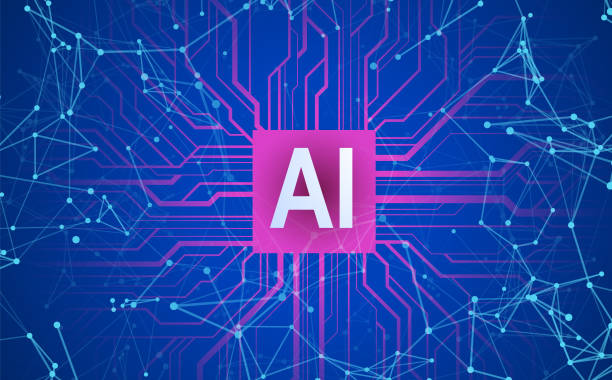What is an Artificial Intelligence Robot? A Comprehensive Definition and Applications
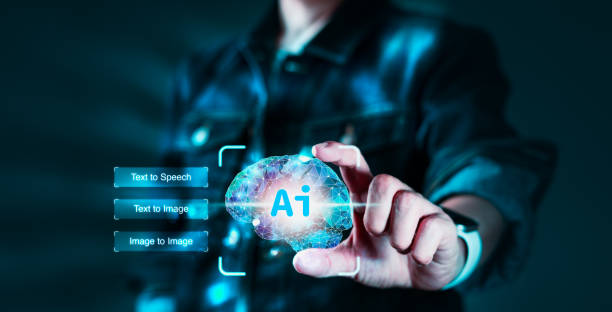
In today’s world, the term #Artificial_Intelligence is increasingly heard.
But what is an artificial intelligence robot, and what are its applications? Simply put, an artificial intelligence robot is a computer program or a machine designed to mimic human cognitive abilities.
These robots are capable of performing tasks such as learning, problem-solving, decision-making, and understanding natural language.
In fact, an artificial intelligence robot attempts to implement human intelligence in the form of a machine system.
The applications of artificial intelligence robots are very broad and diverse.
These include:
- Process Automation: Using artificial intelligence robots to perform repetitive and time-consuming tasks in various industries.
- Medicine: Diagnosing diseases, providing personalized treatments, and assisting in surgery.
- Finance: Analyzing financial data, detecting fraud, and providing investment advice.
- Customer Service: Answering customer questions, providing technical support, and resolving issues.
- Transportation: Developing self-driving cars and intelligent traffic management systems.
In short, an artificial intelligence robot is a powerful tool that can help improve efficiency, increase accuracy, and reduce costs in various fields.
With the rapid advancement of technology, it is expected that the applications of this type of robot will become more widespread and complex in the near future.
Are you losing potential customers due to an unprofessional website? Rasaweb is your answer! With our specialized corporate website design services:
✅ Enhance the credibility and position of your business
✅ Experience attracting more targeted customers
⚡ Take action now for a free consultation!
Types of Artificial Intelligence Robots and the Characteristics of Each
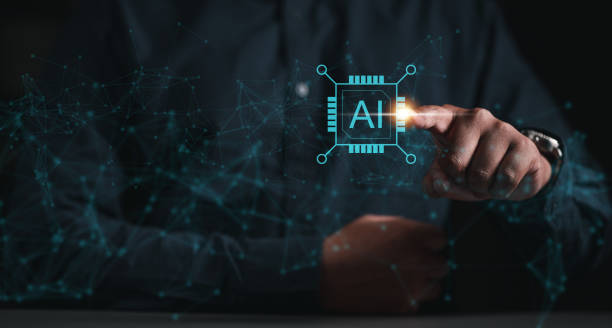
Artificial intelligence robots are categorized based on various criteria.
One of the most common classifications is based on their abilities and performance.
Accordingly, artificial intelligence robots can be divided into several main categories:
- Reactive Machines: These types of robots are the simplest form of artificial intelligence robot and react only based on current inputs.
They have no memory and cannot learn from past experiences.
A simple example of this type of robot is an intelligent chess player that only decides based on the opponent’s current move. - Limited Memory: These robots can store limited information from the past and use it for future decisions.
For example, a self-driving car can store information about the speed of surrounding vehicles and road conditions and use it to drive more safely. - Theory of Mind: These types of robots are able to understand that humans have beliefs, goals, and emotions.
They can use this understanding to predict human behavior and interact better with them.
The development of this type of robot is still in its early stages. - Self-Aware: These are the most complex types of artificial intelligence robot that possess self-awareness and consciousness.
They can think about themselves and understand their own emotions.
Currently, self-aware robots do not exist, and their development is a major challenge for artificial intelligence scientists.
Choosing the right type of artificial intelligence robot depends on the intended application.
For example, for a simple and repetitive task, a reactive robot may be sufficient.
But for a complex task that requires understanding and interaction with humans, a robot with a theory of mind may be necessary.
Artificial intelligence robots are constantly evolving, and new advancements in this field are constantly emerging.
It is expected that in the near future, we will see the emergence of more intelligent robots that are capable of performing more complex tasks.
Machine Learning and Its Role in the Development of Artificial Intelligence Robots
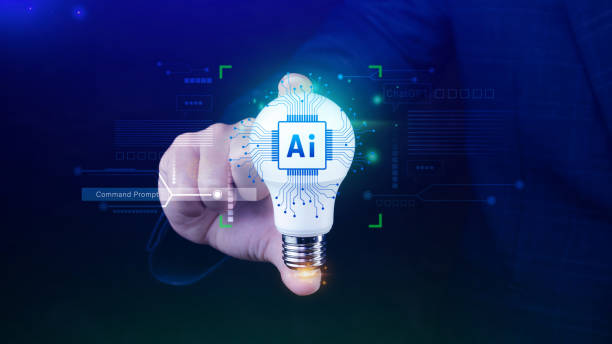
Machine Learning is one of the main branches of artificial intelligence that plays a very important role in the development of artificial intelligence robots.
Machine learning allows robots to learn from data and improve their performance without explicit programming.
In other words, instead of programmers manually defining all the rules and algorithms for robots, robots use machine learning algorithms to discover patterns and relationships in the data and make decisions based on them.
There are different types of machine learning algorithms, each suitable for a specific type of data and tasks.
Some of the most common machine learning algorithms include:
- Supervised Learning: In this type of learning, the robot is trained using labeled data.
Labeled data includes inputs and desired outputs.
By analyzing this data, the robot learns how to relate inputs to desired outputs. - Unsupervised Learning: In this type of learning, the robot is trained using unlabeled data.
The robot must automatically discover hidden patterns and structures in the data. - Reinforcement Learning: In this type of learning, the robot is trained by interacting with its environment.
The robot takes actions and, based on the feedback it receives from the environment, learns which actions lead to rewards and which actions lead to penalties.
Machine learning allows artificial intelligence robots to learn continuously and improve their performance.
For example, an artificial intelligence robot designed for facial recognition can increase its accuracy in recognizing different faces using machine learning.
| Type of Learning | Description | Example |
|---|---|---|
| Supervised Learning | Training with labeled data | Image Recognition |
| Unsupervised Learning | Discovering patterns in unlabeled data | Customer Clustering |
| Reinforcement Learning | Learning through interaction with the environment | Computer Games |
With the rapid advancement of machine learning algorithms, it is expected that artificial intelligence robots will be able to perform more complex and automated tasks in the near future.
Challenges and Limitations of Artificial Intelligence Robot Development
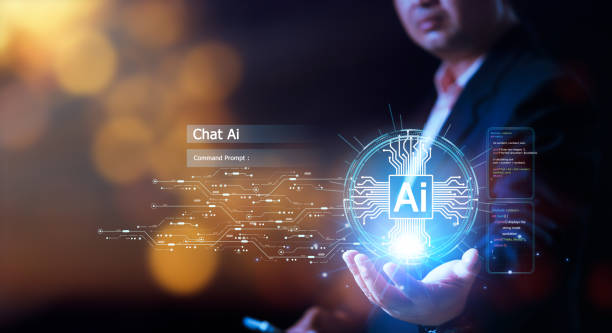
Along with all the benefits and potentials that artificial intelligence robots have, the development and implementation of this technology also come with numerous challenges and limitations.
Some of the most important of these challenges include:
- Data Scarcity: Machine learning algorithms require a large amount of data to train and improve their performance.
In many cases, collecting and preparing this amount of data is a major challenge. - Data Quality: In addition to the amount of data, the quality of data is also very important.
Inappropriate, incomplete, or biased data can lead to incorrect and misleading results. - Interpretability: Many machine learning algorithms, such as deep neural networks, are black boxes that are difficult to understand how they work.
This can reduce confidence in their results. - Security and Privacy: Artificial intelligence robots can be vulnerable to cyber attacks and disclose sensitive information.
Also, the use of artificial intelligence robots can lead to violations of individuals’ privacy. - Ethical Issues: The development and use of artificial intelligence robots raises numerous ethical issues.
For example, who is responsible for decisions made by artificial intelligence robots? - Cost: Developing and implementing artificial intelligence robots can be very expensive.
This can be an obstacle for the use of this technology in small organizations and businesses.
To overcome these challenges and limitations, there is a need for more research and development in the field of artificial intelligence, the creation of ethical and legal standards, and education and awareness-raising to the general public.
Also, cooperation between artificial intelligence experts, policymakers, and civil activists is necessary to ensure that artificial intelligence robots are developed and used responsibly and for the benefit of society.
Are you worried about the low conversion rate of your online store and not achieving your desired sales?
Rasaweb is your specialized solution for having a successful online store.
✅ Significant increase in conversion rates and sales
✅ Professional and user-friendly design to satisfy customers
⚡ Ready for a transformation in online sales? Get a free consultation!
Applications of Artificial Intelligence Robots in Industry and Commerce
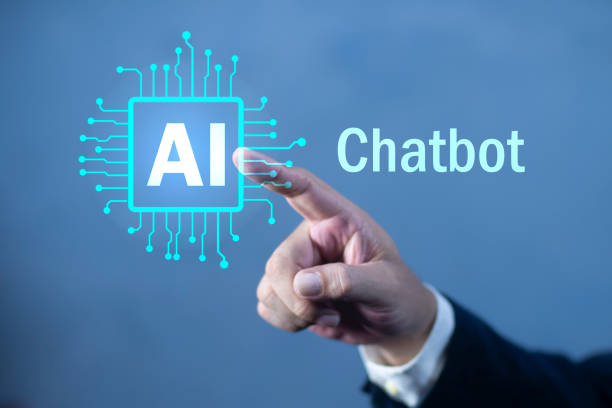
Artificial intelligence robots are creating tremendous transformations in various industries and businesses.
This technology can help improve efficiency, reduce costs, increase revenue, and provide better services to customers.
Some of the most important applications of artificial intelligence robots in industry and commerce include:
- Process Automation: Artificial intelligence robots can be used to automate repetitive and time-consuming processes in various industries.
For example, in the manufacturing industry, intelligent robots can perform tasks such as quality inspection, packaging, and transportation of products. - Improved Customer Service: Chatbots and virtual assistants can be used to provide better services to customers.
These robots can answer customer questions, resolve their issues, and provide the information they need. - Data Analysis: Artificial intelligence robots can be used to analyze large amounts of data and extract valuable information.
This information can be used for better decision-making, identifying new opportunities, and improving business performance. - Demand Forecasting: Artificial intelligence robots can be used to forecast the demand for products and services.
These forecasts can help companies optimize their inventory, improve production planning, and prevent shortages or surpluses of inventory. - Personalized Marketing: Artificial intelligence robots can be used to deliver personalized advertisements and offers to customers.
This can help increase conversion rates and improve customer loyalty.
With the rapid advancement of technology, it is expected that the applications of artificial intelligence robots in industry and commerce will become more widespread and diverse.
Companies that effectively use this technology can gain a significant competitive advantage.
The Future of Artificial Intelligence Robots and Their Impact on Human Life
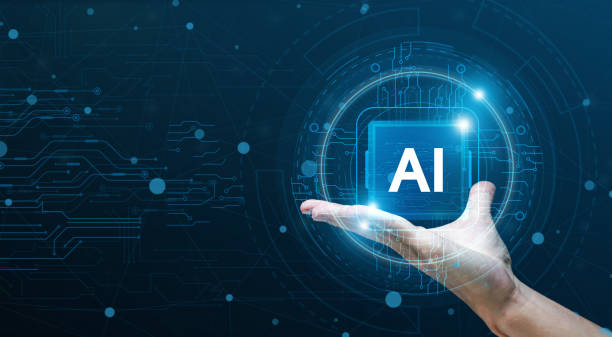
The future of artificial intelligence robots is very bright and full of potential.
With continuous advancements in machine learning, natural language processing, and computer vision, intelligent robots will be capable of performing more complex and automated tasks in the near future.
This will have a profound impact on human life.
Some of the most important impacts of artificial intelligence robots on human life include:
- Employment: Artificial intelligence robots can lead to the automation of many jobs, resulting in some people losing their jobs.
However, artificial intelligence robots can also create new job opportunities, especially in fields related to the development, implementation, and maintenance of intelligent robots. - Health and Treatment: Artificial intelligence robots can help improve disease diagnosis, provide personalized treatments, and increase the quality of healthcare.
Also, surgical robots can perform complex surgeries with greater precision and speed. - Education: Artificial intelligence robots can help provide personalized training and increase students’ engagement with educational content.
Also, teacher robots can help students learn new concepts and answer their questions. - Transportation: Artificial intelligence robots can help develop self-driving cars and intelligent traffic management systems.
This can lead to reduced accidents, reduced traffic, and improved transportation efficiency. - Daily Life: Artificial intelligence robots can help improve people’s daily lives.
For example, domestic robots can perform tasks such as cleaning the house, cooking, and caring for the elderly.
| Area | Possible Impacts |
|---|---|
| Employment | Automation of Jobs, Creation of New Job Opportunities |
| Health and Treatment | Improved Diagnosis, Personalized Treatments |
| Education | Personalized Training, Increased Engagement |
| Transportation | Self-Driving Cars, Intelligent Traffic Management |
| Daily Life | Domestic Robots, Improved Quality of Life |
However, the development and use of artificial intelligence robots also raises important ethical and social issues that need to be addressed.
It is necessary to prevent the misuse of this technology by creating ethical and legal standards and to ensure that artificial intelligence robots are developed and used for the benefit of society and humanity.
Skills Needed to Work in the Field of Artificial Intelligence Robots
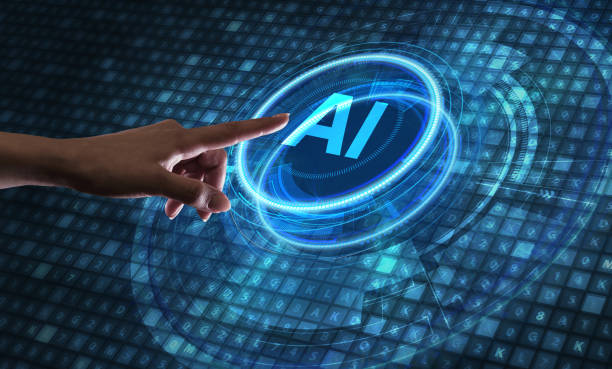
With the growing applications of artificial intelligence robots, the demand for experts in this field is also increasing.
To work in the field of artificial intelligence robots, a combination of technical and non-technical skills is needed.
Some of the most important skills needed include:
- Programming: Mastery of programming languages such as Python, Java, and C++ is essential for developing artificial intelligence algorithms and implementing intelligent robots.
- Machine Learning: Familiarity with machine learning algorithms and the ability to implement and use them to solve various problems is very important.
- Mathematics and Statistics: Understanding mathematical and statistical concepts is essential to understanding how artificial intelligence algorithms work and interpreting their results.
- Natural Language Processing (NLP): Familiarity with natural language processing techniques for developing intelligent robots that are capable of understanding and producing natural language is very important.
- Computer Vision: Familiarity with computer vision techniques for developing intelligent robots that are capable of seeing and understanding images is essential.
- Problem Solving: The ability to solve complex problems and provide creative solutions to the challenges in the field of artificial intelligence robots is very important.
- Teamwork: The ability to work as part of a team and collaborate with other experts to develop and implement intelligent robots is essential.
- Communication Skills: The ability to communicate effectively with other experts, customers, and users to understand their needs and provide appropriate solutions is essential.
To acquire these skills, you can participate in training courses related to artificial intelligence and machine learning, study scientific books and articles, and participate in practical projects in this field.
You can also use online resources such as Coursera, Udemy, and edX to learn about various topics in artificial intelligence.
With effort and perseverance, you can acquire the skills needed to work in the field of artificial intelligence robots and become a successful expert in this field.
The Impact of Artificial Intelligence Robots on Various Jobs
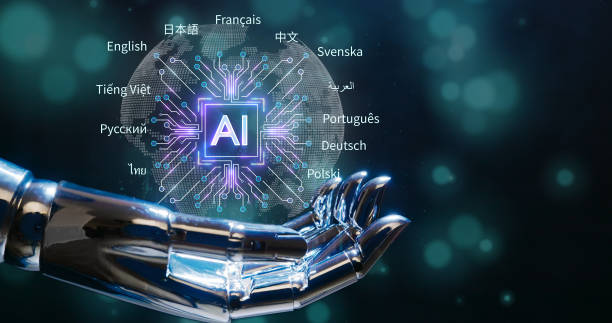
Artificial intelligence robots have widespread impacts on various jobs, and these impacts can be both positive and negative.
On the one hand, artificial intelligence robots can lead to the automation of repetitive and time-consuming tasks, resulting in some people losing their jobs.
On the other hand, artificial intelligence robots can create new job opportunities and help people learn new skills and move to higher value-added jobs.
Some of the jobs that are most at risk of automation by artificial intelligence robots include:
- Telephone Operators
- Data Entry Clerks
- Drivers
- Production Line Workers
- Accountants
Some of the jobs that are less at risk of automation and may even be enhanced by the use of artificial intelligence robots include:
- Artificial Intelligence Specialists
- Healthcare Professionals
- Teachers
- Artists
- Entrepreneurs
To adapt to the changes resulting from artificial intelligence robots, people must constantly update their skills, learn new skills, and move to jobs that require creativity, critical thinking, and interpersonal skills.
Also, governments and organizations should provide training and support programs to help people adapt to these changes.
By properly managing the changes resulting from artificial intelligence robots, the benefits of this technology can be used to improve people’s lives and create a more just and prosperous society.
Tired of losing business opportunities due to not having a professional corporate website? Don’t worry anymore! With Rasaweb’s corporate website design services:
✅ Your brand’s credibility and professionalism will increase.
✅ You’ll attract more customers and sales leads.
⚡ Get a free consultation to get started now!
A Successful Case Study of Artificial Intelligence Robots in an Organization
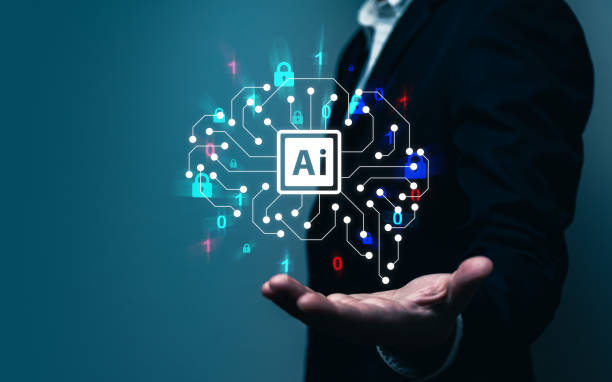
Siemens is one of the leading companies in the field of industrial automation that uses artificial intelligence robots extensively in its processes.
One of the most successful artificial intelligence robot projects at Siemens is the use of this technology for quality inspection of electronic components.
In the past, quality inspection of electronic components was performed by human workers.
This process was time-consuming and costly, and there was a possibility of error.
By using artificial intelligence robots, Siemens was able to automate the quality inspection process.
Intelligent robots use high-quality cameras and computer vision algorithms to analyze images of electronic components and detect potential defects.
The result of this project was a significant increase in the accuracy and speed of quality inspection.
Intelligent robots can inspect electronic components with much greater accuracy than humans, and the inspection speed has also increased several times.
This has led to reduced costs, improved product quality, and increased customer satisfaction.
In addition, the use of artificial intelligence robots has enabled Siemens to move its human workforce to higher value-added tasks.
Instead of performing repetitive inspections, Siemens experts now focus on data analysis, process optimization, and new product development.
This project shows that artificial intelligence robots can be effectively used to improve industrial processes and increase the competitiveness of organizations.
However, for successful implementation of artificial intelligence robot projects, careful planning, the selection of appropriate technology, and workforce training are needed.
Key Points for Successful Implementation of Artificial Intelligence Robots
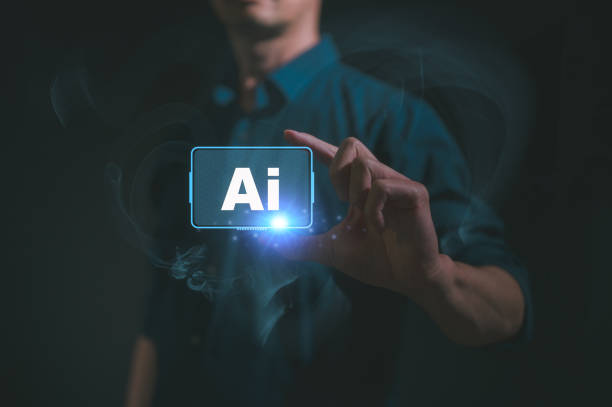
Implementing artificial intelligence robots in an organization is a complex process that requires careful planning and attention to key points.
Here are some key points for successful implementation of artificial intelligence robots:
- Set Clear Goals: Before starting any project, you should clearly define your goals.
What problem do you want to solve using artificial intelligence robots? What results do you expect? - Choose the Right Technology: There are various technologies in the field of artificial intelligence robots.
You should choose the right technology to solve your problem.
For example, if you want to analyze images, you should use computer vision algorithms. - Collect Enough Data: Machine learning algorithms require a large amount of data to train and improve their performance.
You should collect and prepare enough data. - Train the Workforce: Your workforce must receive the necessary training to be able to work with artificial intelligence robots and benefit from them.
- Test and Evaluate: After implementing artificial intelligence robots, you should test and evaluate them continuously.
Has the artificial intelligence robot achieved its stated goals? Can its performance be improved? - Pay Attention to Ethical Issues: When implementing artificial intelligence robots, you should also pay attention to ethical issues.
Does the artificial intelligence robot violate people’s privacy? Does the artificial intelligence robot make discriminatory decisions?
By following these key points, you can increase your chances of success in implementing artificial intelligence robots and benefit from this technology.
Frequently Asked Questions
| Row | Question | Answer |
|---|---|---|
| 1 | What is an artificial intelligence robot? | An artificial intelligence robot is a machine capable of understanding, reasoning, learning, and problem-solving, and it can perform complex tasks with relative autonomy. |
| 2 | What are the most important applications of artificial intelligence robots? | The main applications include industrial production, customer service (chatbots), medicine and surgery, self-driving transportation, space exploration, and military affairs. |
| 3 | What is the main difference between an artificial intelligence robot and a regular robot? | A regular robot only follows programmed instructions, while an artificial intelligence robot can learn from data, make decisions, and adapt to new environments. |
| 4 | How do artificial intelligence robots learn? | They identify patterns and improve their performance through machine learning algorithms (such as deep learning, reinforcement learning) and processing vast amounts of data. |
| 5 | Can artificial intelligence robots have emotions? | Currently, artificial intelligence robots do not have real emotions in the human sense. They can mimic or recognize emotions, but they do not understand or experience them. |
| 6 | What are the current limitations of artificial intelligence robots? | The limitations include the need for large amounts of data, the inability to understand abstract concepts, the lack of real creativity, ethical issues, and the challenges of generalizability in new environments. |
| 7 | What is the role of artificial intelligence in the development of humanoid robots? | Artificial intelligence helps humanoid robots walk, maintain their balance, understand their surroundings, interact with humans, and perform complex tasks. |
| 8 | How is the future of artificial intelligence robots predicted? | It is predicted that artificial intelligence robots will become smarter, more autonomous, and capable of performing more complex tasks in daily life and industry, and their interaction with humans will increase. |
| 9 | Can artificial intelligence robots replace all human jobs? | It is unlikely that all human jobs will be replaced. Robots take on many repetitive and dangerous tasks, but jobs that require creativity, empathy, and moral judgment will remain. |
| 10 | What ethical and social challenges arise with the expansion of artificial intelligence robots? | The challenges include issues related to privacy, data security, ethical decision-making by robots, the impact on employment, and accountability in case of errors. |
And other advertising agency services Rasa Web in the field of advertising
Smart Customer Journey Map: A fast and efficient solution to increase website visits by focusing on SEO-oriented content strategy.
Smart Digital Advertising: A novel service to increase customer behavior analysis by optimizing key pages.
Smart Sales Automation: Transform online growth with intelligent data analysis.
Smart Advertising Campaign: A dedicated service for growing customer behavior analysis based on custom programming.
Smart Social Media: A professional solution for analyzing customer behavior with a focus on intelligent data analysis.
And more than hundreds of other services in the field of internet advertising, advertising consulting and organizational solutions
Internet Advertising | Advertising Strategy | Reportage Advertising
Resources
What is an intelligent robot and how do they work?
,What is artificial intelligence? — In simple terms + applications and types
,Applications of Artificial Intelligence: 15 of the most amazing in today’s world
,Artificial Intelligence in Everyday Life: Applications, Advantages and Disadvantages
? Are you looking to grow your business dramatically online? Digital marketing agency “Rasavab Afrin” guides your brand towards success by offering innovative and comprehensive solutions including Multilingual website design, SEO, and social media management. Contact us today and transform your digital future!
📍 Tehran, Mirdamad Street, next to the Central Bank, South Kazerun Alley, Ramin Alley No. 6

